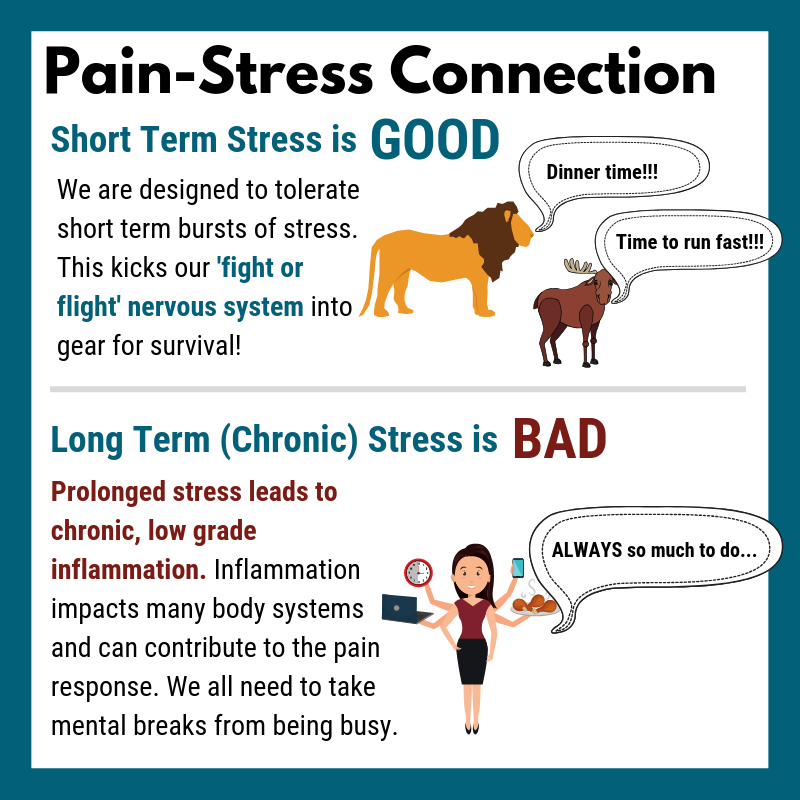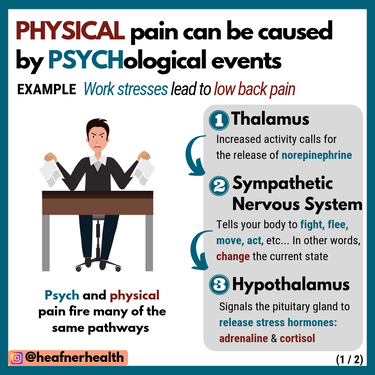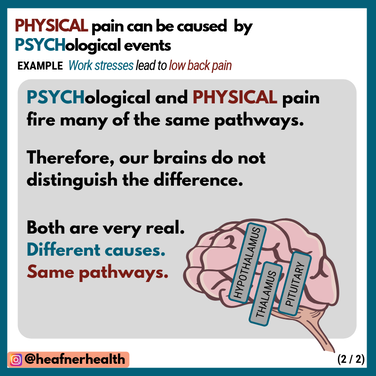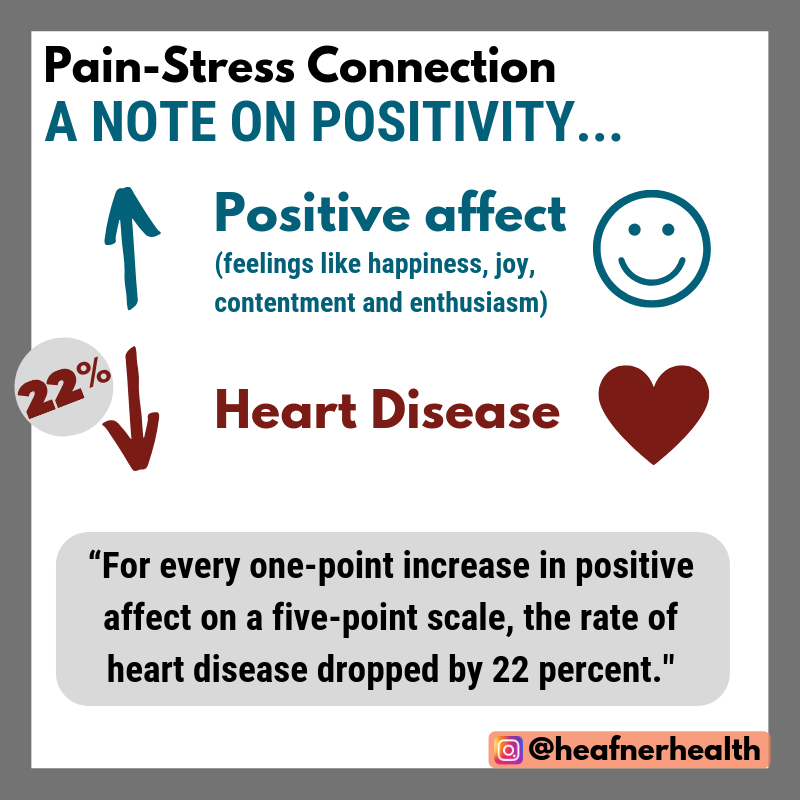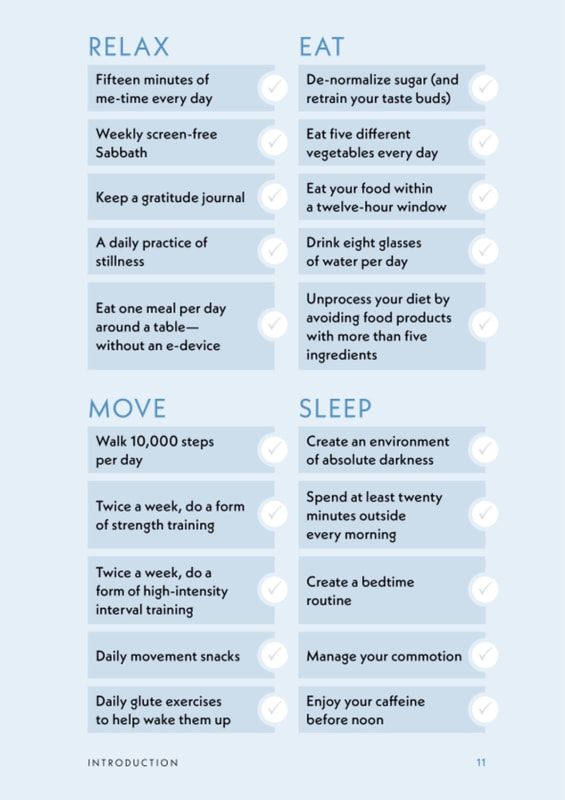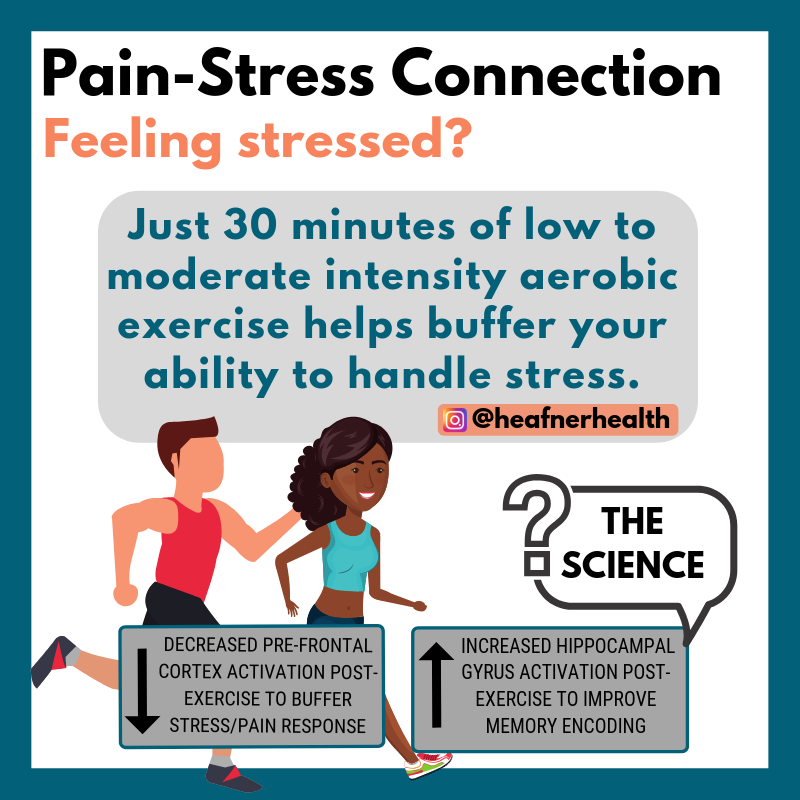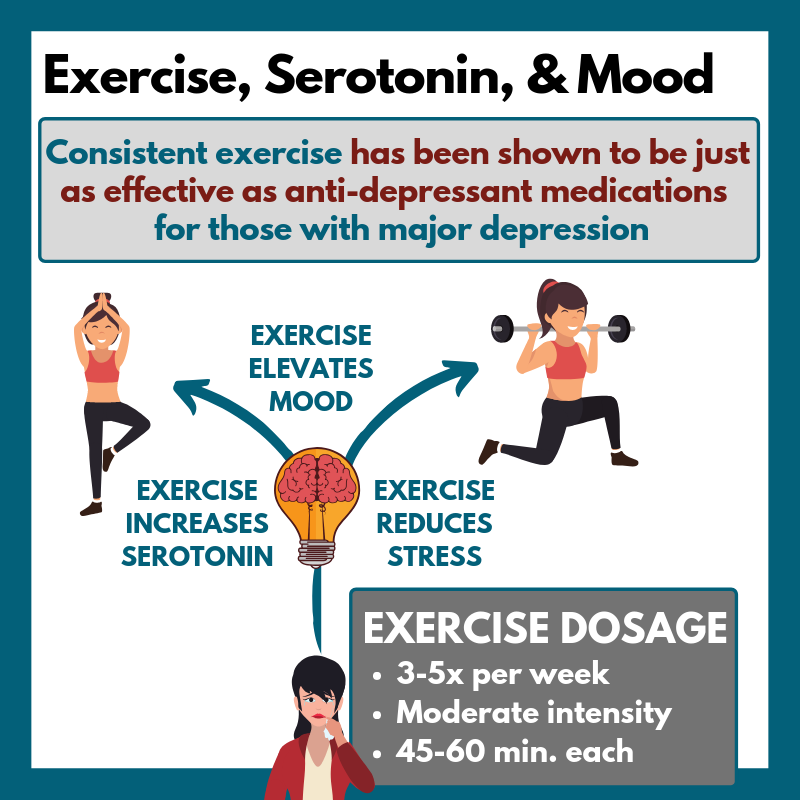Stress Management Quiz
-
Could Stress Be Contributing to Your Pain?
Do You Regularly Experience:
|
|
If you answered yes, continue reading to learn more about stress and pain!
The Connection between Stress and Pain
|
There is a good chance you have heard the expression 'fight or flight' regarding someone's reaction to a situation. However, many people do not know what this actually means. 'Fight or flight' refers to an unconscious reaction from your nervous system--specifically the sympathetic nervous system-- in regards to a stressful situation.
From an evolutionary standpoint, stress is a good thing that protects us from threats or potential dangers. However, our ancestors likely experienced stress for SHORT amounts of time, then returned to their normal state of mind. Today, many people suffer from LONG term or chronic stress. This creates inflammation in the body and can directly impact your decision making, emotions and mood, and your ability to handle a painful injury. |
For this reason, stress at work or at home, can directly contribute to physical aches or pains you are experiencing. For example, if you are suffering from persistent low back pain (pain that has lasted >12 weeks), there is a good chance that stress is contributing to your symptoms.
How Does My State of Mind Impact my Body Aches and Pains?
As I mentioned above, we are designed to handle SHORT amounts of stress, not LONG standing stressful events. When your brain recognizes stress, it calls your thalamus into action. The thalamus activates the 'flight or flight' response, which then tells your hypothalamus to release stress hormones. These well known hormones are adrenaline and cortisol.
Lifestyle Advice and Recommendations
|
There are hundreds of ways to reduce stress and no single solution works for all people. Despite the ample opportunities to decrease stress, one factor is consistent, you will not notice a change unless you regularly practice that stress management technique.
|
Benefits of Relaxation:
|
Tips for the Breathe
Deep breathing engages the body's relaxation response. As discussed above, this response lowers your heart rate and blood pressure, relaxes your muscles, and more. While each of us breathe nearly 20,000x a day, many people take shallow, small breaths from the upper chest. A deep breathe increases oxygen throughout the body and lets the body relax.
Take a Deep Breathe
- When taking a deep breathe IN, one should feel their belly move OUT
- When taking a deep breathe OUT, one should feel their belly move IN
|
90/10 Rule:
Breathe 90% through your abdomen Breathe 10% through your upper chest |

